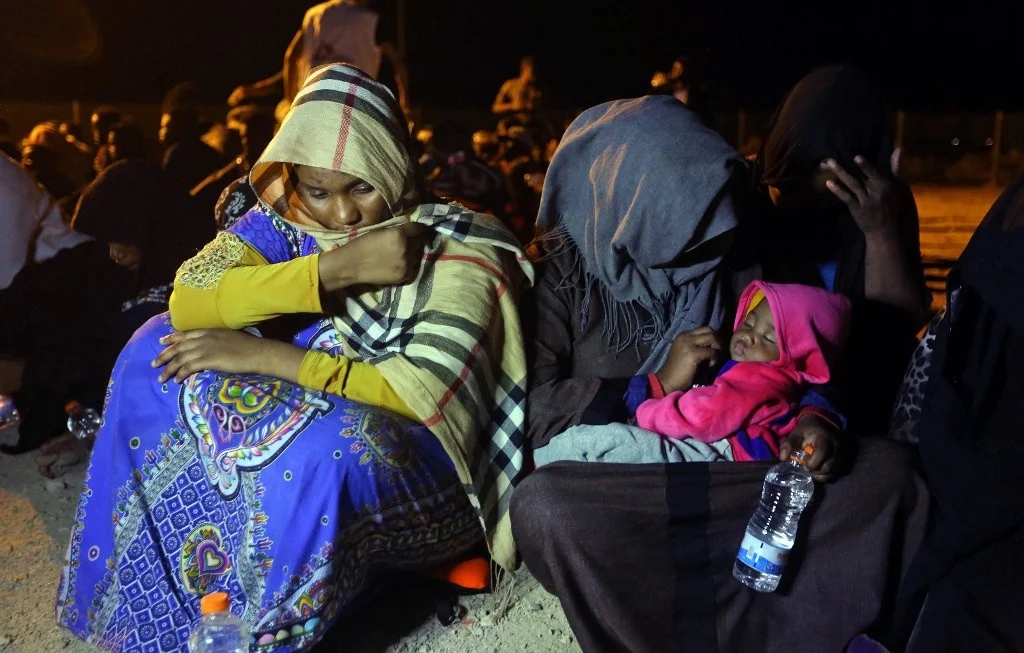
The United Nations has called on Libya to treat migrants and asylum seekers with dignity as it highlighted concerns over arbitrary detentions and mass expulsions.
The war-torn country has been accused of arresting men, women and children from the streets and their homes, with many held in overcrowded places.
Libyan authorities have also been called on to grant UN agencies and aid organisations “unimpeded access to detainees in need of urgent protection”.
The United Nations on Monday called on Libya to treat migrants and asylum seekers with dignity, highlighting concerns over their treatment including arbitrary detention and mass expulsion.
War-torn Libya is regularly criticised for its handling of migrants, with rights groups alleging horrific treatment by smuggling gangs and inside state-run detention centres.
“Libyan authorities have arrested thousands of men, women and children from the streets and their homes or following raids on alleged traffickers’ camps and warehouses,” the UN’s Support Mission in Libya (UNSMIL) said in a statement.
Many, including “pregnant women and children”, are held in “overcrowded and unsanitary” conditions, UNSMIL said.
The organisation said:
Thousands of others, including migrants who have entered Libya legally, have been collectively expelled without screening or due process.
It also called on Libyan authorities “to halt these actions and treat migrants with dignity and humanity”.
Authorities must grant UN agencies and aid organisations “unimpeded access to detainees in need of urgent protection”, UNSMIL added.
Libya is a key launchpad for migrants who are often fleeing conflict and poverty in sub-Saharan Africa. They seek to reach Italian shores just 290 kilometres to the north across the Mediterranean Sea.
The route is the world’s deadliest migratory sea crossing.
Libya hosts more than 600 000 migrants, according to the International Organization for Migration (IOM). Most enter illegally by crossing vast deserts to enter the country’s porous southern border.
The country was plunged into years of chaos after a NATO-backed uprising toppled and killed strongman Moamer Kadhafi in 2011, helping to turn Libya into a fertile ground for human traffickers who have been accused of abuses ranging from extortion to slavery.
Libya is now divided between two rival political administrations, one based in the capital Tripoli, in the west, and another in the country’s east.
Forces from the rival administrations frequently raid neighbourhoods that are home to migrants.
Vessels carrying migrants off its coast are regularly intercepted by the Libyan navy – even in international waters – with those on board forcibly returned and placed in detention centres.
Since the beginning of 2023, more than 7 000 migrants have been intercepted at sea and returned to Libya, the IOM said.
More than 600 have drowned in attempted crossings to Europe and 368 people are missing, the agency added.
In the same period, more than 50 000 migrants have landed on Italy’s coast including more than 22 000 from Libya, according to the UN’s refugee agency.
